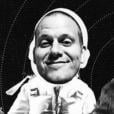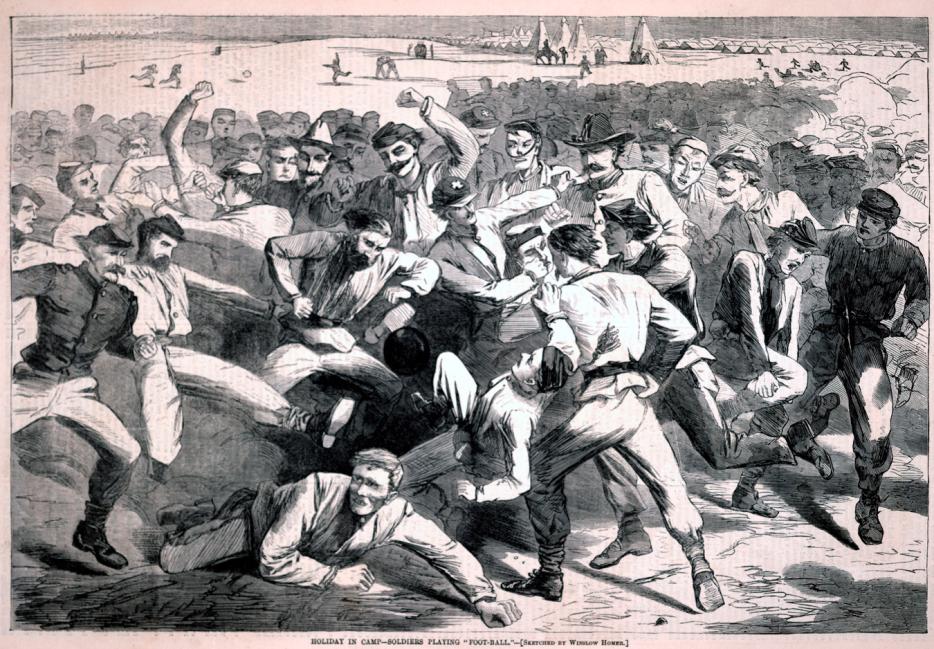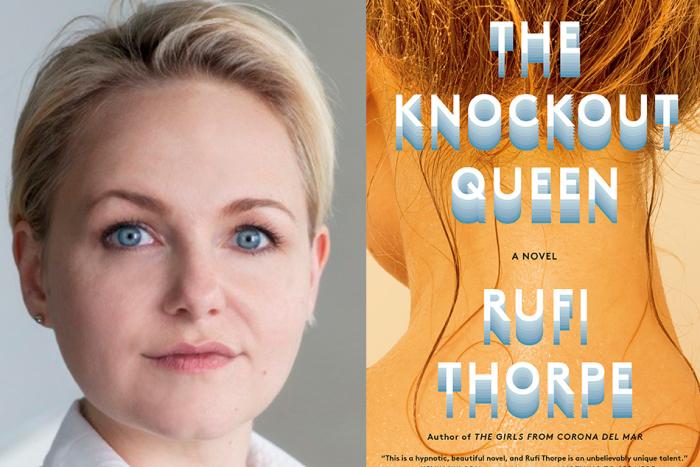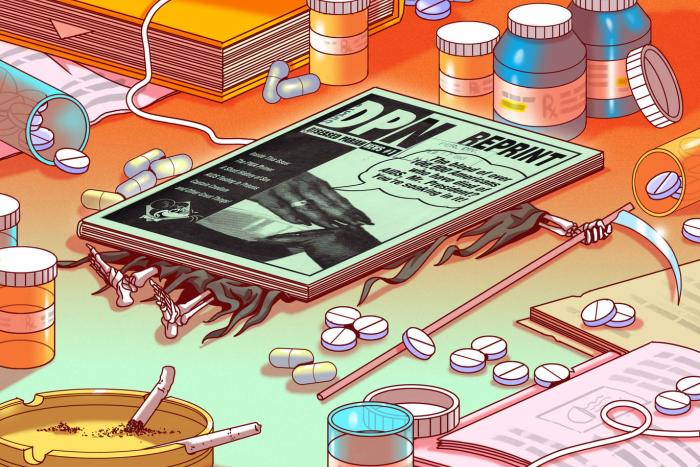Once, there were sports. Spencer Hall and Jason Kirk try to remember what that was like.
Spencer Hall: I remember there were … expensive commercials. I definitely remember expensive commercials being a part of live sports. I only noticed this when sports on replay happened. Before, in an NBA game happening in real time, there would be LeBron selling me a Kia or James Harden selling me insurance. For the record, I don’t think James Harden and risk management should ever appear in the same sentence, much less be the foundation for an insurance ad campaign.
The ads for replay games are cheap and very sad: Home generators, car warranties, bootleg tactical gear for things that shouldn’t be tactical like car visors and hearing aids. I like high-dollar advertising during sports because it lies to me, and doesn’t come right out and try and sell me on blatant fraud. Make my frauds expensive and pretty, please.
Jason Kirk: Before, when there were sports, we did have some Diesel-Powered Combat Mode Frying Pan (Sovereign Citizen Edition) commercials, but mostly for college basketball games that tipped off around midnight ET. Mainly there was a commercial about a breakaway theocracy named after Dr Pepper, a place we all wanted to live. But now it’s just the frying pans. Fansville is now our paradise lost.
I also seem to recall the University of Nebraska playing men’s basketball, but no one ever figured out why.
Do you remember how long sports took, back when there were sports? I remember one football game as being three-plus hours of commitment, and that’s if we were just sitting at home and waiting for the next game after it. Going to a game could mean budgeting between eight hours and three days. Of course, this was back when there were not just sports, but also days.
SH: I recall this: Different sports digested time differently. Football hours worked like an interval runner. Sometimes an hour took an hour, and then sometimes an hour took fifteen minutes, depending on who was playing. We watch college football. That means watching service academies running the triple option, and sometimes that means fifteen minutes on the clock taking something actually close to an actual fifteen minutes.
Soccer was basically a sitcom and took 22 minutes. Every NBA game felt like exactly 90 minutes, even the important ones. Hockey felt normal in the regular season, but in the playoffs? It was like being in a car crash or an animal attack, in that I know the important parts happened in ten seconds or so, but in my brain each second felt like hours.
When I watched golf, I forgot whether I had ever done or lived anything outside of watching seemingly endless golf.
JK: So the post-sports world we live in is GOLF WORLD.
The thing I remember most about sports: all the spreadsheets, piling longer and longer forever. Spreadsheets of injuries and transactions, each line sliding across the bottom of a TV screen’s spreadsheet. This happened during a game in which the period-by-period scoreboard looked like a spreadsheet. The results went into a different spreadsheet for the season as a whole. That season went into a historical archive spreadsheet. Nerds pored over all of them to create their own spreadsheets, which they sold to people who looked at Las Vegas’s spreadsheets.
Sports were a perfect engine of meaningless data creation. I like all the old spreadsheets, but I would’ve preferred for the new ones to continue. I do not like that most of them halted and some will be forever incomplete. So I thank the NFL for continuing to fill its transaction spreadsheets as if all is normal, whether it gets around to filling out its actual game spreadsheets ever again or not.
Do you remember how, back when there were sports, each person had a list of teams they strongly preferred to win? Like, if the Portland Trail Blazers and Memphis Grizzlies squared off, you and I would be a little bit happier about life if the Grizzlies were the team that won. What was all that about?
SH: Remembering that would involve remembering different places. I have only ever been in Atlanta. Its teams are all I have ever known. Its championships are the only triumphs I have ever felt. I now realize I have experienced very few triumphs in life, Jason. This feeling is horrible. It kind of makes me want to die, Jason, or at least avoid saying “I watched Trae Young play basketball before he started winning things with another team somewhere else.” I would like to remember other places with other teams. Please help me do that.
JK: Our sweet lad Trae Young has already expressed interest in rooting for Tampa because that’s where Tom Brady lives now, due to spreadsheets. Trae is lost to us. We already miss him.
One cool thing I remember about sports is watching people run fast in one direction. It was fun to watch someone do this when unimpeded, such as when Usain Bolt walked into a mall in church shoes or whatever and ran as fast as the fastest NFL player ever had, but it was ten times as fun when someone was able to run really far while other people were trying to stop that person from running far.
Remember watching De’Anthony Thomas, who has been posting GOOD TWEETS since the year 2012, run free at the Rose Bowl? That was good.
Remember the Rose Bowl? That was good.
Even more fun than watching someone run in one direction: watching someone run in a series of different directions, perhaps while also doing something else, like bouncing a ball with their hands, feet, or head. Some sports didn’t have this, but I think most of them did.
Back when sports existed, you were also very good at pointing out which big people were good at stopping little people from running. That was also fun to watch.
SH: Thank you for the kind words. I remember another thing I was very good at: Pointing out perfectly normal, wonderful people living their best lives in the stands. I miss that as much as any game, I think, because it is not often that normal people end up on television without committing a crime or being the victim of one.
I miss seeing normal people getting to be abnormal for fun in the context of a sporting game. I remember otherwise respectable people punching each other in the face ineffectively during college football games. I remember otherwise responsible members of society obviously on their seventh beer caught sleeping in the stands of an afternoon game. I remember seeing Philly fans doing literally anything but being normal for anyone but a Philly fan. Some of them even had jobs and families, and still did things like accosting Russell Westbrook from the stands like that was something a person would do!
I remember sports being a cool, otherworldly space-place where people could completely depressurize for several hours, and sometimes even succumb to space madness along the way. Do you remember that part? The part that was like Apollo 13, but for your team’s secondary after their starting safety went out with an injury and they had to figure out how to play with ten defenders and one guy who should have been going to law school instead of covering the other team’s best receiver?
The part that was a problem, but a fun one to solve?
JK: And/or problems that very much belonged to someone else, despite us getting to invest feelings in whether they solved these problems or not. Caring about whether a mediocre general manager could finally figure out how to do sports budgets: this was kinda like politics, but in a fake world in which we didn’t have to acknowledge politics can kill us. That was nice!
Watching a four-hour game and walking away with one GIF-worthy moment, a drunk fan or a trick play or a coach falling over, felt like a version of sifting for gold, but a version in which the dirt itself was also valuable. The best parts of sports, as I think you agree, were these times when something went wrong. Nothing is more interesting than something breaking, especially when corporate champions have invested billions of dollars in them going right.
Like the time this happened:
[tweet_embed]https://twitter.com/ConnorNewcomb_/status/1160651681148915712[/tweet_em…]
Sports were little chemistry labs designed to run for hours, months, and centuries, along the way producing countless things nobody could’ve predicted from the outset.
SH: That makes sports sound a lot like the Miller-Urey experiment. That’s the one where scientists took the basic elements present on early Earth—water, methane, hydrogen, and ammonia—bottled them up in a closed system that allowed for evaporation and condensation, and ran some sparking electricity through the part holding the evaporated gases to simulate lightning. Miller and Urey wanted to see if, over time, they could cook up a little bit of the primordial soup of simple amino acids forming the building blocks of what would become life.
It worked. Eventually, out of nothing, they created the start of what could be a world. That exact thing happens in sports all the time. There are inert things like stadium, arenas, courts—nothing too special by themselves. There are people, perfectly normal people, in the stands, and games with simple rules to play. Put them together, add in lightning in the form of brilliant athletes competing, and let it cycle for a while.
I watched Atlanta become a soccer town in a year, and a championship soccer town in two. There was nothing before that. Then someone decided to run a little electricity through the whole system. Then there was a team, and full stadiums, and supporters clubs, and banners and drums and all the rest of the accoutrements every other real-deal soccer team has. Atlanta United doesn’t just feel like they’ve worked. They somehow feel like they’ve always been here.
At the end, that kind of experiment can feel like its own little planet, if everything’s going right. It can feel like its own little planet even if it’s going wrong, actually. Like, not a good planet, right? One of the foreclosed ones with a huge tax lien on it. There should be more shows about this kind of future, where people get evicted from Ganymede to make way for luxury space colonies funded by world barons gentrifying the planet.
There are no sports and I am obviously going mad, but maybe selling a script is a pretty good idea right now, no?
JK: A stage is set, conditions are negotiated, and then things just happen. That’s very cool, especially within the context of the greater world, where no conditions are negotiated to any real degree.
I might never forget the last two sports things I got to attend before sports went away.
One was Army-Navy in Philadelphia, America’s true spiritual capital, where the difference between the two essentially identical programs was that one (Navy) had future Miami Dolphins spreadsheet member Malcolm Perry, and one (Army) did not. Also a president was there beneath a gray sky, which I assume he hated as much as he hates everything.
The other sports thing was Oklahoma getting torched by LSU in the Peach Bowl, the most ruthless obliteration I’ve ever seen in person. In the third quarter, after Joe Burrow had already scored eight touchdowns, I got to stand next to LSU’s band while drunk Tigers fans begged for the chance to shout obscenities along with the song “Neck.” They all agreed so many people had vacated OU’s sections, very few enemies would even hear these obscenities, but it was the spirit of the thing.
For me, the thing that mattered most about sports is how they, by design, did not matter. We built industrial complexes around them, but at heart, they were about discovering which side had earned the right to shout the cooler obscenities on any given day. And then the following day, we would rediscover.
Do you have any thoughts about some of the last sports you got to witness, back when there were sports?
SH: The last thing I saw live before this happened was the national title game between LSU and Clemson in New Orleans. I killed time getting over to the Superdome by going to an oyster bar and ordering a dozen oysters. When they were gone I ordered another dozen, and then ordered another twelve.
Me and thirty-six oysters and three beers in my stomach walked over to the game and didn’t fight or disagree once. It was the perfect kind of clammy, cool January night in New Orleans where the river breathes just enough of a breeze through the streets to keep things hospitable. I don’t remember anyone fighting. I don’t remember anyone yelling too much. I got a high-five from three LSU fans who had no clue who I was but were just happy about being alive at the same time as prime Joe Burrow. They were so, so drunk.
Joe Burrow blazed. Clyde Edwards-Helaire played with one good hamstring and still looked like one man playing the part of three brilliant, different football players, and did it brilliantly. Trump came out. He didn’t matter and never does. Alvin Kamara got up on a table to take a free drink from Saints fans in the box next to ours. LSU hit the afterburners and Clemson lost them somewhere over Metairie. Odell Beckham was hammered when the game started and got so rowdy a cop tried to arrest him in the locker room when Odell slapped him on the ass. The Tigers won.
That’s like three feast days in one: Watching LSU win, doing it in New Orleans, and capping it by stuffing myself to the point of foundering on either side. I spent $120 on lunch by myself the next day at Peche. A friend I hadn’t seen in eight years walked over from his house and sat down and we just bullshitted and talked about football sitting about three feet apart from each other. Do you hear all the beats of an impossible world playing there? I do. I feel every little ping of a world I’ve only missed for forty-five days at this point like cactus needles just pressing into the skin of a hovering hand. In 24 hours I got to do everything that now seems like a litany of impossible irresponsibilities.
I didn’t regret spending that money on lunch at the time. I definitely don’t regret it now.
JK: As for the original question, I think the answer to what sports were is that sports were good. Especially when they were bad.
But what about when they were neither?
What is the most average, boring, mediocre demonstration of sports you would be delighted to sit through the entirety of right now, having been immersed in a post-sports world?
I think I would watch an entire San Diego Padres game, dealer’s choice as to which season.
SH: I just want you and me and everyone on the planet to know that when and if things get back to something like normal: The Indiana Pacers will be playing basketball. No one will remember anything about it, not even when they lose. I can’t wait to not remember watching them play again. No one misses the mid, until the dealer’s sold out of mid.
And the mid will be so wonderfully forgettable when it gets back in stock.







